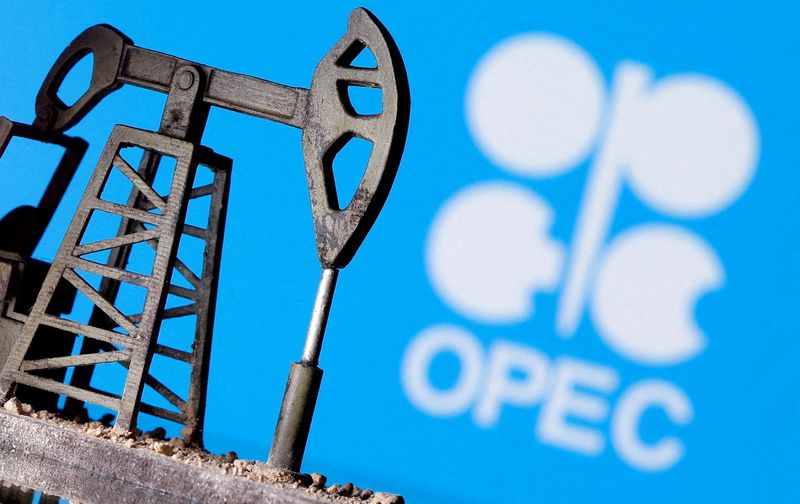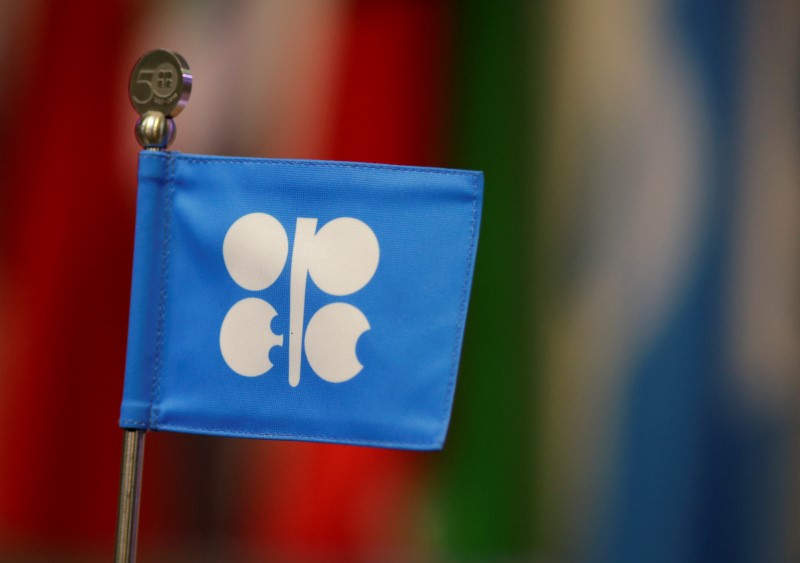By Alex Lawler, Ahmad Ghaddar, Maha El Dahan and Olesya Astakhova
LONDON/DUBAI (Reuters) – A meeting of top OPEC+ ministers left oil production policy unchanged, including a plan to increase production from December, while also highlighting the need for some members to make further cuts to ease overproduction to compensate.
Several ministers from the Organization of the Petroleum Exporting Countries and allies led by Russia, or OPEC+ as the group is known, held an online joint ministerial monitoring committee (JMMC) meeting on Wednesday.
“The JMMC emphasized the critical importance of achieving full compliance and compensation,” OPEC said in a statement after the meeting. “In addition, the committee will continually assess market conditions.”
Oil prices fell below $70 a barrel in September for the first time since 2021, but have since risen above $75 on concerns that a possible escalation in the Middle East following the Iranian military attack on Israel could disrupt production from the region .
OPEC+ is cutting production by a total of 5.86 million barrels per day (bpd), or about 5.7% of global demand, in a series of steps agreed since the end of 2022.
The group plans an increase of 180,000 barrels per day in December as part of a gradual winding down of the latest layer of voluntary cuts stretching into 2025. The increase was postponed from October after prices fell.
Countries’ compliance was the focus of the meeting, sources present told Reuters, and is expected to remain so in the coming weeks, especially in Iraq and Kazakhstan.
These countries have promised so-called compensation cuts of 123,000 barrels per day in September and more in subsequent months to make up for their previous overproduction.
Iraq, Kazakhstan and Russia told the meeting that they had delivered on their promised cuts in September, the OPEC statement said.
But this will have to be verified by the second week of October by secondary sources – the consultancy firms and price reporting agencies the group uses to determine its members’ production levels, the statement said.
An OPEC+ source told Reuters last week that clarity on whether the offset cuts were implemented in September would allow the December increase.
However, a lack of compliance could prompt Saudi Arabia and other countries to increase production even faster from December, analysts said.
“If they do not comply, we can imagine a more rapid end to the voluntary cuts,” Helima Croft of RBC Capital said in a report.

The JMMC, which groups oil ministers from Saudi Arabia, Russia and other leading producers, usually meets every two months and can make recommendations to change policy.
It will hold its next meeting on December 1, ahead of a full meeting of OPEC+.


